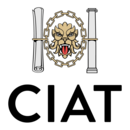School Specification 101: plumbing and heating systems in schools
Contents |
[edit] The role of plumbing and heating in schools
Making learning environments safe and comfortable places for students and staff is a top priority for schools up and down the country. Plumbing and heating systems have a key role to play in creating spaces that are conducive to effective teaching and learning; they elevate safety and performance at every point of use.
There are more than 30,000 schools and academies in the UK, providing dedicated learning environments for more than ten million pupils and employment for more than 600,000 teaching staff. For each of these environments to be effective, it is essential for buildings to perform optimally, including their plumbing and heating systems.
Essential to the smooth, safe and efficient running of schools, plumbing and heating systems must withstand high levels of usage every day, as well as perform reliably for years to come to maximise the stretched budgets of individual schools.
To achieve this, specification is key in equipping schools with the systems they and their pupils will need to rely on.
[edit] Optimising systems for health and safety
Health and safety should be a primary consideration. Accommodating users of all ages, schools should be acutely aware of protecting users from risks such as scalding, as well as diseases such as Legionnaires.
To protect people at the point of use, Thermostatic Mixing Valves (TMVs) can be installed at each outlet, ensuring water temperatures do not exceed 46 degrees Celsius and therefore do not pose a scalding risk. To provide adequate performance and meet the required standards, it is essential that schools use TMV2-approved valves, unless the users are likely to be at a higher risk of scalding. Higher risk users could be those with disabilities, or children of nursery age. In these environments, only TMV3-approved valves should be installed.
To protect users over the long-term, valves should also be easy to access, supporting future maintenance and servicing. Along with testing at time of installation, interim testing should take place every six months for TMV3 valves, and every twelve months for TMV2 valves.
Schools generally have larger hot water systems and user demand is constant, so secondary circulating hot water systems are becoming more common to enable instant hot water at the outlets. It is essential to thermally balance this type of system to ensure optimum efficiency from the heat source; unbalanced systems create a host of problems, from inconsistent hot water availability to creating environments for harmful bacteria to grow. Thermal Balancing Valves (TBVs) negate these challenges. Installed at various points across a system, they safely provide a constant and stable supply of hot water and regulate the flow of water in line with temperature.
Aside from risks such as scalding, specifiers should also seek to prevent against backflow, which is when pressure fluctuations move water in the opposite direction and contaminate the supply. Schools are Fluid Category 4 and as such require the installation of Reduced Pressure Zone (RPZ) valves as standard for this.
[edit] Future-proofing systems
Besides safety, the longevity and reliability of plumbing and heating systems is paramount for schools, enabling them to withstand heavy usage and remain functional for years to come. In practice, effective specification helps schools to maximise their budgets and deliver consistent value for all stakeholders.
Along with protecting users from some of the common challenges associated with hot water systems, effective specification also improves ongoing maintenance. Through effective system planning, regular maintenance and servicing gets carried out quickly and accurately, maximising lifespan and performance.
This article appears in the AT Journal issue 150, summer 2024 as 'School Specification 101: plumbing and heating systems in our schools' and was written by Richard Bateman, Product Marketing Manager, RWC.
--CIAT
[edit] Related articles on Designing Buildings
- Baseline designs for schools.
- BIM for mechanical electrical and plumbing drawings.
- Building Bulletin 93: acoustic design of schools.
- Broadmeadows Primary School.
- Building Schools for the Future BSF.
- Building energy management systems BEMS.
- Building management systems.
- Building services.
- CIBSE Case Study Bushbury Hill Primary School.
- Cooling systems for buildings.
- Energy management and building controls.
- Frequently Googled plumbing and electrical problems.
- Heating.
- How BIM can cause needless early stage MEP design concerns.
- HVAC balancing.
- Mechanical ventilation.
- Mechanical, electrical and plumbing MEP.
- MEP BIM and the building lifecycle.
- Pipework.
- Plant room.
- Plumbing.
- Radiator.
- Rising main.
- Thermal comfort.
- Types of building services.
- Types of heating system.
- Ultrasonic pipe testing.
- Valves.
- Water Regulations Advisory Scheme WRAS.
- What is BB101?
Featured articles and news
The UK’s largest air pollution campaign.
Future Homes Standard, now includes solar, but what else?
Will the new standard, due to in the Autumn, go far enough in terms of performance ?
BSRIA Briefing: Cleaner Air, Better tomorrow
A look back at issues relating to inside and outside air quality, discussed during the BSRIA briefing in 2023.
Restoring Abbotsford's hothouse
Bringing the writer Walter Scott's garden to life.
Reflections on the spending review with CIAT.
Retired firefighter cycles world to raise Grenfell funds
Leaving on 14 June 2025 Stephen will raise money for youth and schools through the Grenfell Foundation.
Key points for construction at a glance with industry reactions.
Functionality, visibility and sustainability
The simpler approach to specification.
Architects, architecture, buildings, and inspiration in film
The close ties between makers and the movies, with our long list of suggested viewing.
SELECT three-point plan for action issued to MSPs
Call for Scottish regulation, green skills and recognition of electrotechnical industry as part of a manifesto for Scottish Parliamentary elections.
UCEM becomes the University of the Built Environment
Major milestone in its 106-year history, follows recent merger with London School of Architecture (LSE).
Professional practical experience for Architects in training
The long process to transform the nature of education and professional practical experience in the Architecture profession following recent reports.
A people-first approach to retrofit
Moving away from the destructive paradigm of fabric-first.
International Electrician Day, 10 June 2025
Celebrating the role of electrical engineers from André-Marie Amperè, today and for the future.
New guide for clients launched at Houses of Parliament
'There has never been a more important time for clients to step up and ...ask the right questions'
The impact of recycled slate tiles
Innovation across the decades.
EPC changes for existing buildings
Changes and their context as the new RdSAP methodology comes into use from 15 June.

























